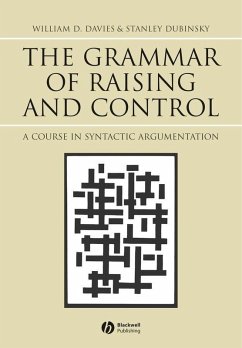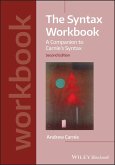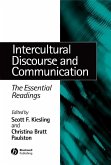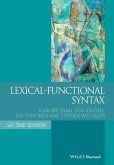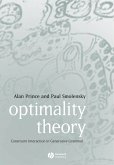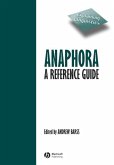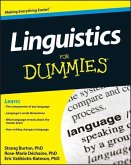The Grammar of Raising and Control surveys analyses across a range of theoretical frameworks from Rosenbaum's classic Standard Theory analysis (1967) to current proposals within the Minimalist Program, and provides readers with a critical understanding of these, helping them in the process to develop keen insights into the strengths and weaknesses of syntactic arguments in general.
- Distills a very successful graduate course in syntax from two prominent figures in the field, covering analyses from a range of theoretical frameworks.
- Provides readers with an understanding of the various perspectives represented in generative syntax, using a particular class of grammatical constructions as a means of examining the evolution of syntactic theory over the last thirty years.
- Helps students to develop keen insights into the strengths and weaknesses of syntactic arguments.
- Includes excerpts from six important works that allow students to familiarize themselves with the original literature while also providing discussion of the theoretical context in which they were written.
Dieser Download kann aus rechtlichen Gründen nur mit Rechnungsadresse in D ausgeliefert werden.
"The Grammar of Raising and Control is a remarkable book bymany criteria. I was extremely impressed by the skillful way inwhich it interweaves grammatical analysis with the history of thetreatment of two central grammatical constructions, at each pointzeroing in on how linguists go about arguing for structures andrules. This book belongs on the shelf of every syntactician andstudent of syntax."
Frederick J. Newmeyer, University ofWashington, Seattle
"This book will be appreciated both as a practical history ofcontemporary syntactic theory and as an innovative approach to theteaching of syntax. Its sharp and sustained focus on the interplayof data and theory makes it an especially valuable text."
Judith Aissen, University ofCalifornia at Santa Cruz
Frederick J. Newmeyer, University ofWashington, Seattle
"This book will be appreciated both as a practical history ofcontemporary syntactic theory and as an innovative approach to theteaching of syntax. Its sharp and sustained focus on the interplayof data and theory makes it an especially valuable text."
Judith Aissen, University ofCalifornia at Santa Cruz

